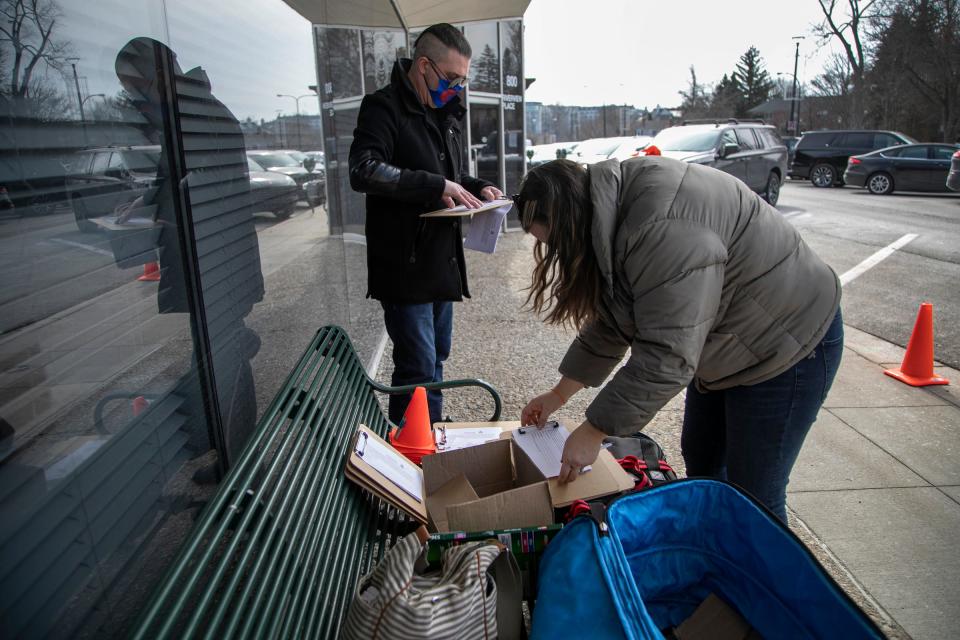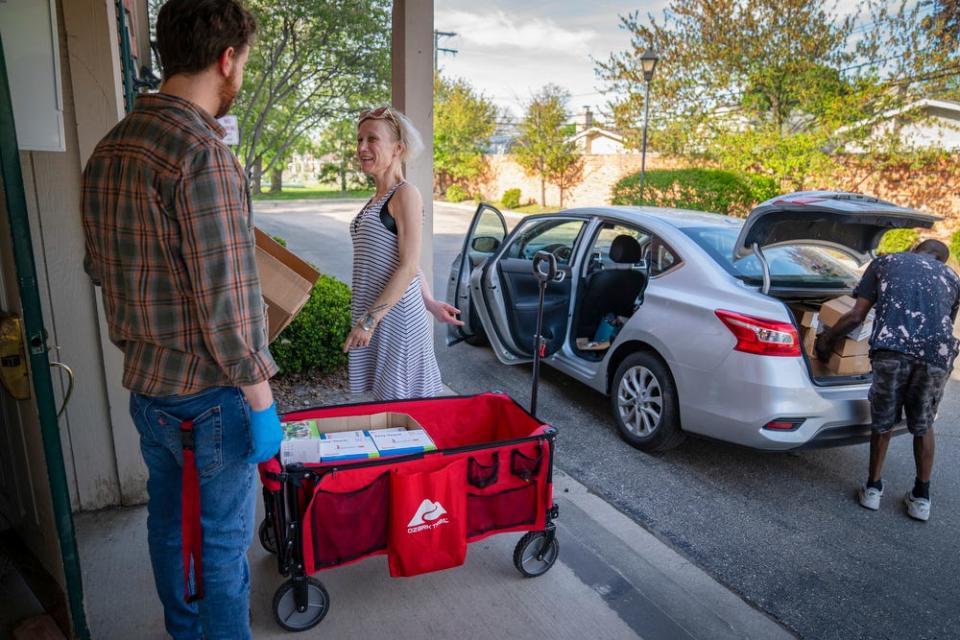Millions of Americans are grieving the overdose of a loved one amid searing stigma, study says
As the number of people who die from drug overdoses grows, the ripple effect for Americans is far-reaching.
A survey by the nonprofit think tank Rand Corporation found that more than 40% of American adults know someone who died from an overdose and close to a third say that death disrupted their lives. The study authors noted that little is known about the impact of these deaths on extended families.
Fatal overdoses have been on an upward trajectory since 2000, with 109,000 deaths in 2022, most of them from synthetic opioids such as fentanyl.
The consequences of each overdose death are tripled and quadrupled by the impact they have on friends and family, said Justin Phillips, founder and CEO of Overdose Lifeline, an Indiana-based nonprofit focused on substance use disorder and prevention. The overdose death of a loved one comes with an added burden, for many, of shame and blame rather than support, she said.
“We just don’t see them equally, culturally, in our world,” Phillips, who lost a son to an overdose, told USA TODAY. “It’s very lonely to have this be your loved one’s cause of death.”
Addiction treatment: Treatment for teens is inaccessible, costly as U.S. opioid deaths rise

The study published Wednesday indicates there is a need for a greater understanding of overdose loss. Few have explored the consequences of overdose death compared with the body of knowledge on the health effects of other types of deaths on grieving people.
“The type of grief that people experience after this particular kind of loss can be really, really intense,” said Alison Athey, a clinical psychologist who is lead author and an associate behavioral scientist at Rand. “It can impact their functioning and make it hard for them to get through their day-to-day life. And because of the stigma associated with overdose, it may be harder for people to deal with this type of grief.”
Prior research explored the negative effects of substance use disorder on users, including the impact of addiction on incarceration rates, employment and the health care system. But there’s been less focus on the health and life outcomes of people left behind after a fatal fentanyl or methamphetamine overdose, for example.
The study in the American Journal of Public Health drew from over 2,000 participants in Rand’s American Life Panel, a long-term web-based survey of American adults, in February and March 2023. The researchers found that more than 42% of respondents knew at least one person who had died by overdose. The study used census figures to extrapolate, and determined overdose deaths would have a ripple effect on about 125 million adults in the U.S. who experienced loss from overdose death in their orbit.
There were vast geographic differences in who experienced loss, with higher rates of people in New England and southern states such as Alabama, Kentucky, Mississippi and Tennessee. Losses were more common among women, married people, American-born participants and people in living in urban settings.
About a third of people who had experienced loss said it disrupted their lives. The researchers determined about 40 million Americans have experienced this.
America's addiction crisis: It's not just fentanyl. These drugs play a growing role.

KFF researchers looking at the toll of the opioid crisis arrived at similar results in a survey last July. Two-thirds of respondents said they or someone they knew had been addicted to alcohol or drugs, experienced homelessness because of addiction or had a drug overdose that led to an emergency room visit, hospitalization or death. Twenty-nine percent of adults said they or someone in their family had been addicted to opioids.
People in that study said the person's addiction had an impact on their relationships, mental health and finances. Liz Hamel, KFF’s vice president of public opinion and survey research, said the effects of one person's addiction were found to be widespread and were apparent across races, ethnicities and income levels.
Despite the broad impact of addiction and overdose, the field has been understudied, according to experts in overdose loss. Tanya Lord, a director of a Massachusetts group called Peer Support Community Partners whose 29-year-old son is dealing with severe addiction, said she has seen the reverberations of overdose deaths in support groups for grieving parents. People who have lost a relative to overdose often feel the need to talk about that person being good to justify their grief.
“People don't have the space to grieve the person that they love,” Lord said. “There’s just not permission to love and to grieve this person, and yet we still love them.”
This leads to unresolved grief, which is documented as having major health consequences. As the opioid crisis grows and more Americans die from overdoses, researchers hope their findings will result in greater understanding and less stigma for families like these.
For resources or support with substance use disorder, you can visit the SAMHSA.gov website or call 1-800-662-HELP (4357).
This article originally appeared on USA TODAY: More Americans grieving as overdose deaths mount, Rand says
